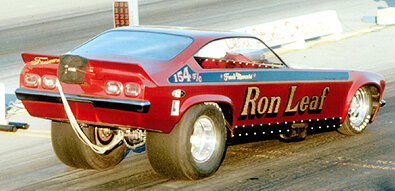
Frank Octavius Mancuso (May 23, 1918 - August 4, 2007) was a catcher in Major League Baseball who played for two teams between 1944 and 1947. Listed at 6' 0", 195 lb., Mancuso batted and threw right handed. He was born in Houston, Texas. His older brother, Gus Mancuso, also was a major league catcher. Following his 18-year baseball career, Mancuso almost certainly had the longest continuous tenure of any elected city official in Houston history.
Mancuso began playing baseball in 1937 in the minor league system of the New York Giants. After hitting .417 for Fort Smith in 1938, the Giants moved him up to their major league roster for the entire 1939 season as a third string catcher, but he did not get into a single game during the regular season. That disappointment was offset by the opportunity he had to warm up pitcher Carl Hubbell, and sharing the company of other great Giants like OF Mel Ott and manager Bill Terry. He was sent back to the minors before the 1940 season.
After hitting .300 or more in three minor league seasons, Mancuso entered the U.S. Army as a paratrooper at Fort Benning, Georgia in December 1942 and was on his way to an accident that forever altered the course of his baseball career. In 1943, he suffered a broken back and leg when his chute opened late and improperly. He almost died from his injuries and was subsequently discharged from the service for medical reasons. A part of his injury was an unfortunate condition for a catcher, where in looking straight up caused him to lose the flow of oxygen to the brain, and he would pass out. As a result, he never regained all of his mobility after the parachute jump and was never responsible for catching pop-ups.
Mancuso spent the rest of his life with back and legs pains, but he worked himself back into shape and returned to baseball in 1944 as one of two catchers for the only St. Louis Browns club to ever win an American League pennant. He shared duties with Red Hayworth, hitting .205 with one home run and 24 RBI in 88 games. The Browns lost to the St. Louis Cardinals in the 1944 World Series in six games, but Mancuso hit .667 (2-for-3) and collected one RBI in injury-limited pinch-hitting duty. His most productive season came in 1945, when he posted career-numbers in games (119), batting average (.268), RBI (38) and runs (39). In 1946 he hit .240 with a career-high three home runs in 87 games, playing his last majors season with the Washington Senators in 1946.
In a four-season career, Mancuso was a .241 hitter (241-for-1002) with five home runs and 98 RBI in 337 games, including 85 runs, 37 doubles, seven triples, and two stolen bases.
From 1948-1955, Mancuso earned further respect as a catcher for top minor league clubs like Toledo and Beaumont, among others, and with the 1953 Houston Buffs, a minors club that preceded the Colt .45s & Astros. He also played winter baseball in the Venezuelan League during the 1950-51 and 1951-52 seasons. In his first season, he hit .407 with 49 RBI and also became the first player in the league to hit 10 home runs in a 42-game schedule.
After baseball retirement, Mancuso served for 30 consecutive years (1963-93) on the Houston City Council. During his political life, he gave of himself generously to the needs of the young people and to causes benefiting disadvantaged children. He also supported the creation of Lake Livingston and Lake Conroe reservoir to meet the city's long-term water needs; the construction of Houston Intercontinental Airport, and was chairmanship of a special committee that recommended the Houston Fire Department have its own ambulance service. Beside this, Mancuso also was the only Italian-American on the council; the Italian-American heads of city departments; and other high-ranking city, county and state employees.
In the late 1990s, Harris County built the Frank Mancuso Sports Complex, a facility that strategically reaches out to the needs of inner city kids, in his honor. His 2003 induction into the Texas Baseball Hall of Fame reunited him with his older brother, Gus Mancuso (1905-1984), as the second member of the family to be inducted.
Mancuso died in Pasadena, Texas at the age of 89.
